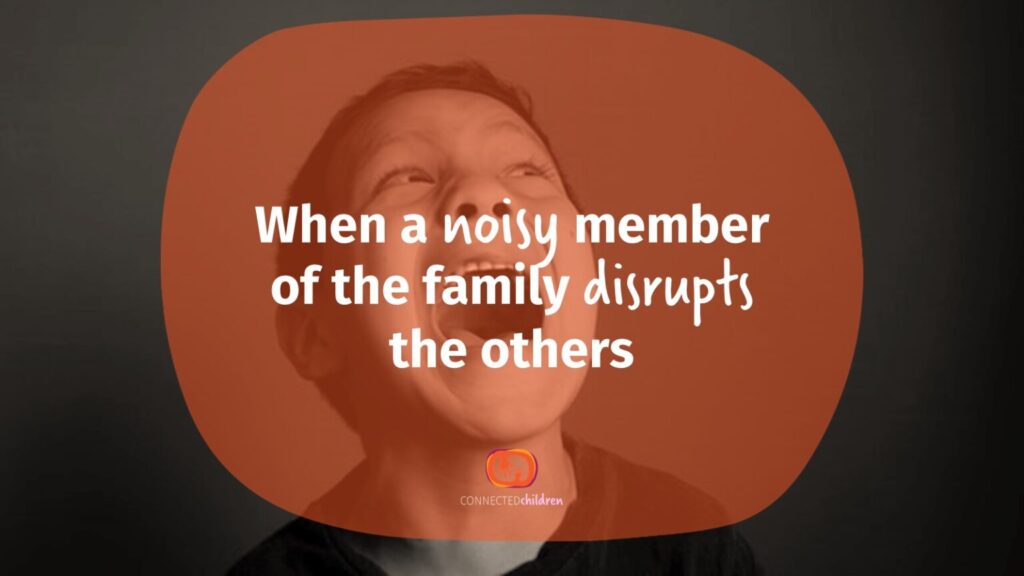
What happens when you have one member of the family who disrupts the others?
I see this frequently. One child is on the go, touching things, messing things up, making more noise than the others in the house can tolerate, talking or shouting a lot. Or maybe the family think they are shouting, but they are just more sensory sensitive than the others.
When the usual rhythms of the house are regularly disrupted, this may sound like a small thing. But it can make everyday situations really stressful. Many children simply don’t realise that the sounds they make can be so hard for other people to hear.
These reasonably minor irritations can be a source of ongoing drain , especially for the family member who needs to deal with the conflict.
So what do we do about it?
Let’s break down a situation I see often.
Say there is one child is shouting or energetically playing, then someone else in the family comes in and says.. that is soo noisy! A parent usually needs to step in pretty quickly, or they may the one struggling with the noise themselves. This child can see the aggravation but simply not understand why this is such a problem. When this happens, we need to pull this apart for them.
Children are typically quite egocentric and developmentally they will struggle to consider other’s experiences.
You could say, ‘Everyone’s bodies are different’ ‘Some bodies like movement, some like lots of noise, others like it quiet’.
Ask them about themselves first, ‘what does your body need?’ ‘How do you know?’ They may talk about jumping on the trampoline and you can perhaps add some of your observations of what they tend to enjoy.
It is so important to use a curious tone with them for this conversation.
‘Do you think your brother likes noise and lots of movement or is he different?’
What’s helpful here is that you join in their curiosity- a relaxed brain is a learning brain.
If they feel accused, like all of us, they may become defensive and the learning opportunity is lost.
Another important piece here is making sure that they don’t feel their way is negative. It’s just the way they are. This may be a great opportunity to let them know how much you appreciate their energy and enthusiasm!
Next part is to engage them in the solution. “Can we put our heads together on this one? We talked about what your body needs when you are at home. What do you think your brother needs when he is at home?’
Engaging them in solving the problem helps support their development in many different ways.
Involving them in finding the solution shows you value their contribution, helps reinforce and apply this new learning and you are more likely a better ‘buy in’ from them in committing to the changes.
‘When you have lots of bouncing beans, where could you go to give your body what it needs?’
Help them come up with ideas that will suit their sensory pattern (make sure there is an adequate level of intensity of input when planning with them – it is often missed).
What could does your brother need in order for his body to have what it needs? What do we need to do to give his body what it needs? Keep the ideas simple to do and build on them over time.
I know there are many parts missing in this post (two big ones – what to do when it is intentional and another – what to do when there are a wide range of sensory patterns in one family) but hopefully this is a starting point in harnessing your expertise to help your child learn about their sensory patterns, what this means for themselves and the people in their lives.
What are some other challenges when it comes to the sensory needs of one impacting upon the others?
